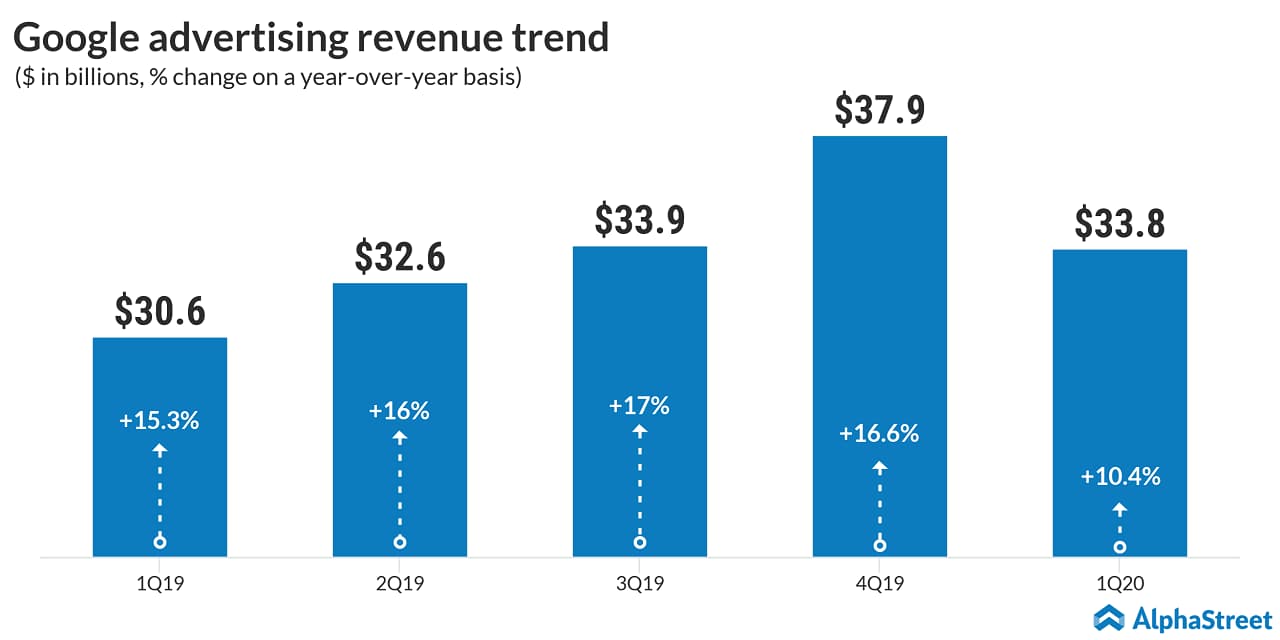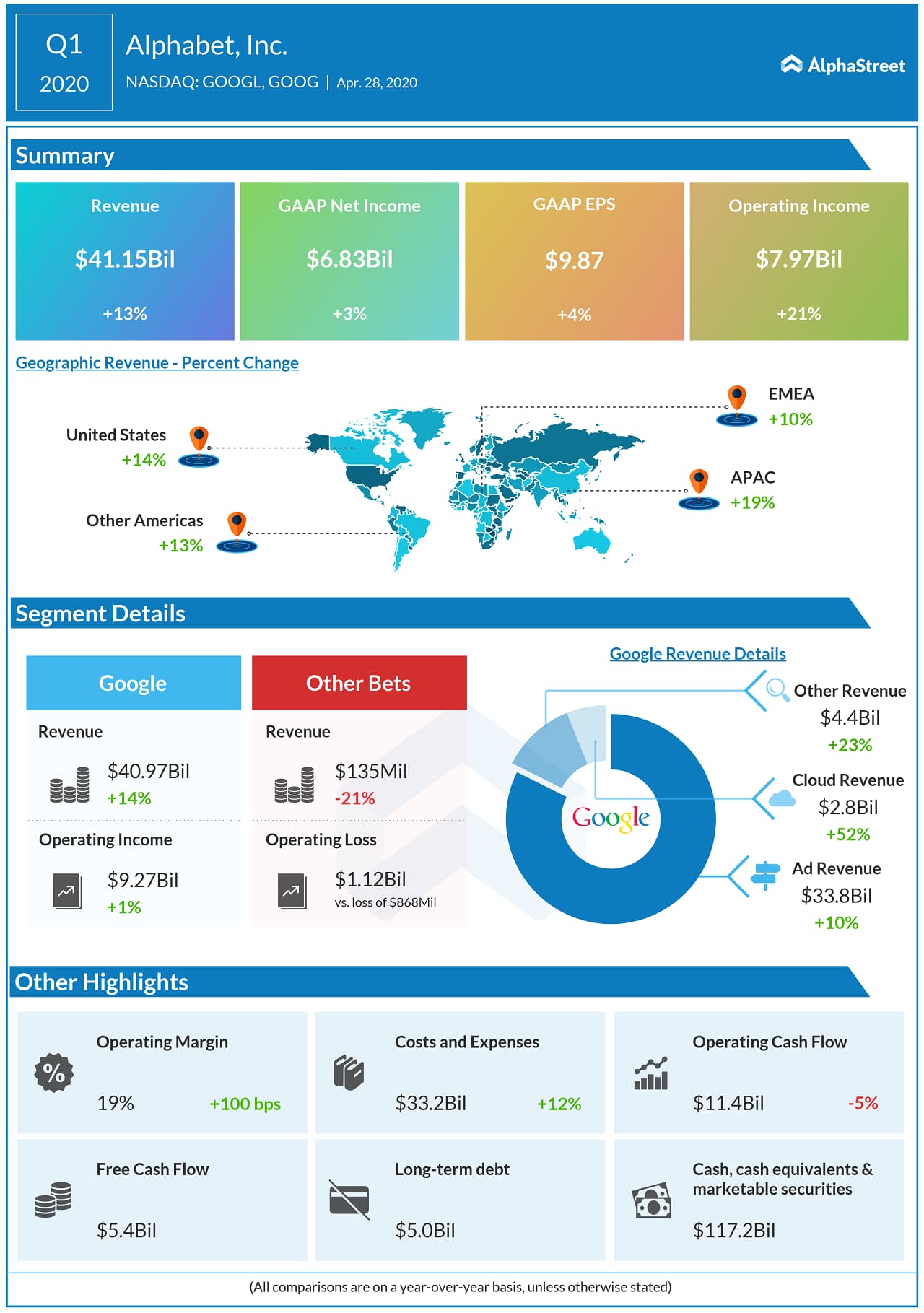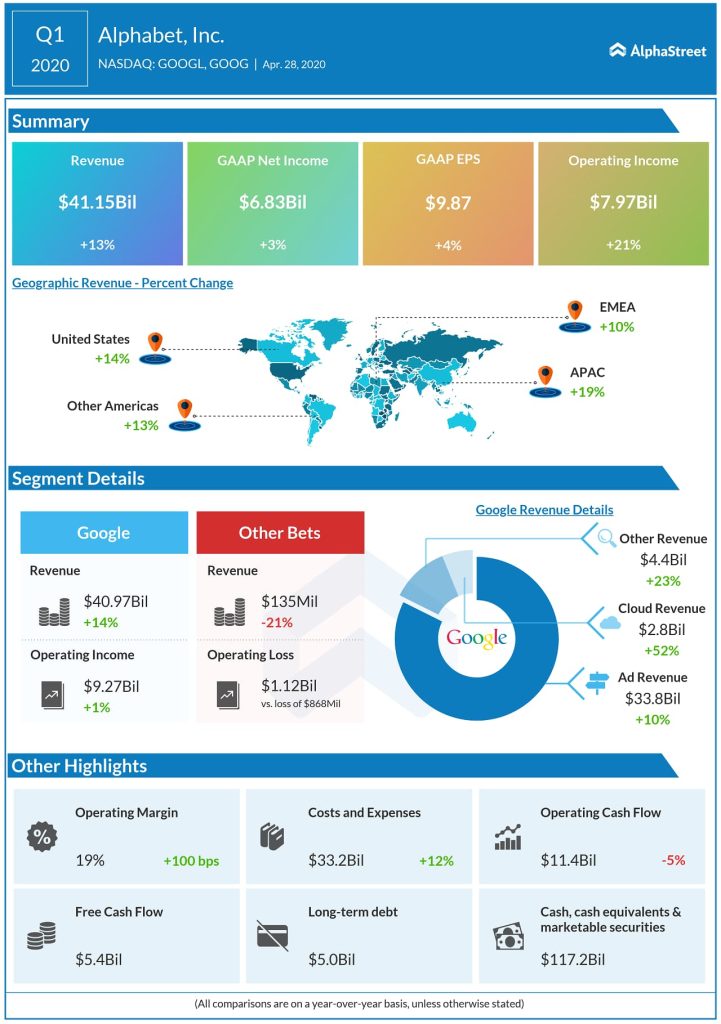Google’s bread and butter business is still Search & related ad revenues (generated $24.5 billion in revenues in Q1, up 14% YoY). But in March, Ad revenues began to decline and ended the month at a mid-teens percentage decline in year-on-year revenues. Although users’ search activity increased, according to Google, their interests shifted to less commercial topics (i.e., people started searching for Covid symptoms instead of which gadget/car to buy). In addition, there was also reduced spending by advertisers (duh!).
YouTube, which contributed $4 billion to the ad kitty, began to experience a headwind in mid-March. And by the end of March, total YouTube ads revenue growth decelerated to high-single digits (bye-bye travel ads!)

It’s said that “Content is more likely to become viral the more positive it is”. So let me stop ruining the fact of Google’s HUGE ad revenue loss that’s going to impact it’s next few quarters. If you still want to soak in the numbers, here’s a visual representation of their earnings.
[irp posts=”57777″]

Law of Small Numbers—Amos Tversky and Daniel Kahneman’s name for the fallacy of thinking that the traits of a population will be reflected in any sample, no matter how small*.
With that in mind, let’s look at some mind-numbing numbers shared in the call:
- 100 million students and educators are using Google Classroom, double the number from the beginning of March
- More than 6 million paying G Suite customers
- There are now over 2.5 billion monthly active Play devices worldwide
- Google Meet — adding roughly 3 million new users each day & now over 100 million daily Meet meeting (Zoom, pls note!)
- Seeing significant interest from governments and companies (all the way at a CEO level ) looking for work-from-home solutions – Google Cloud & GSuite for the win!
What about YouTube?
Direct response advertising is picking up on YouTube, especially for app installs & gaming. But is seeing a continued decline in brand advertising.
We are overall seeing strong momentum on YouTube. People are turning to YouTube. Our watch time has increased across the board. People are also looking for authoritative news content. Viewership on YouTube has increased significantly compared to last year too. So in many ways through the pandemic, people are using YouTube and the trends are global across North America, EMEA, and Asia Pacific as well.
ADVERTISEMENT
So, what are Google’s plans to weather this storm?
- Slowing down the pace of hiring for the remainder of 2020
- Re-calibrating its focus and pace of investments in data centers and machines
- Cutting out non-business essential marketing and travel
- Thoughtfully manage its “Other Bets” portfolio – Waymo (raised $2.25 billion externally) & Wing
- And the biggest change? – Reduction in global office facility investments
[irp posts=”54846″]
Circling back to the book, Everybody Lies*, author Seth Stephens talks about 4 Powers of Big Data and how it allows us to finally see what people really want and really do, not what they say they want and say they do.
- Offering up new types of data is the 1st power of Big Data.
- Providing honest data is the 2nd power of Big Data.
- Allowing us to zoom in on small subsets of people is the 3rd power of Big Data.
- Allowing us to do many causal experiments is the 4th power of Big Data.
Why is this relevant here? I believe Google is best placed to understand the changing consumer as well as the business mindset and is best placed to understand the post COVID world than any other corporation out there. This was amply visible in their responses to Wall St. analysts during the interesting Q&A section.
To a question from an analyst on positive trends, Sundar Pichai, said —
People respond to changes in Search faster, brand trail. We are seeing active conversations between our teams and our large advertisers where they are trying to understand the demand shifts and how they can respond. And so, overall, I see — both from users, users are engaging with Google, YouTube and our core products and services and while obviously, there’s an impact on the economy and we’re not immune to that, the engagement from advertisers across our products and with our teams has been very robust.
ADVERTISEMENT
As with Google, so with everyone else trying to use data to understand the world. The Big Data revolution is less about collecting more and more data. It is about collecting the right data*.
*Stephens-Davidowitz, Seth. Everybody Lies. Bloomsbury Publishing. Kindle Edition.
AUTHOR’S NOTE: Radhakrishnan Chonat is an avid Googler who finds all answers in life through search, though he’s still unhappy with the Google search result for “how to make missus happy“
